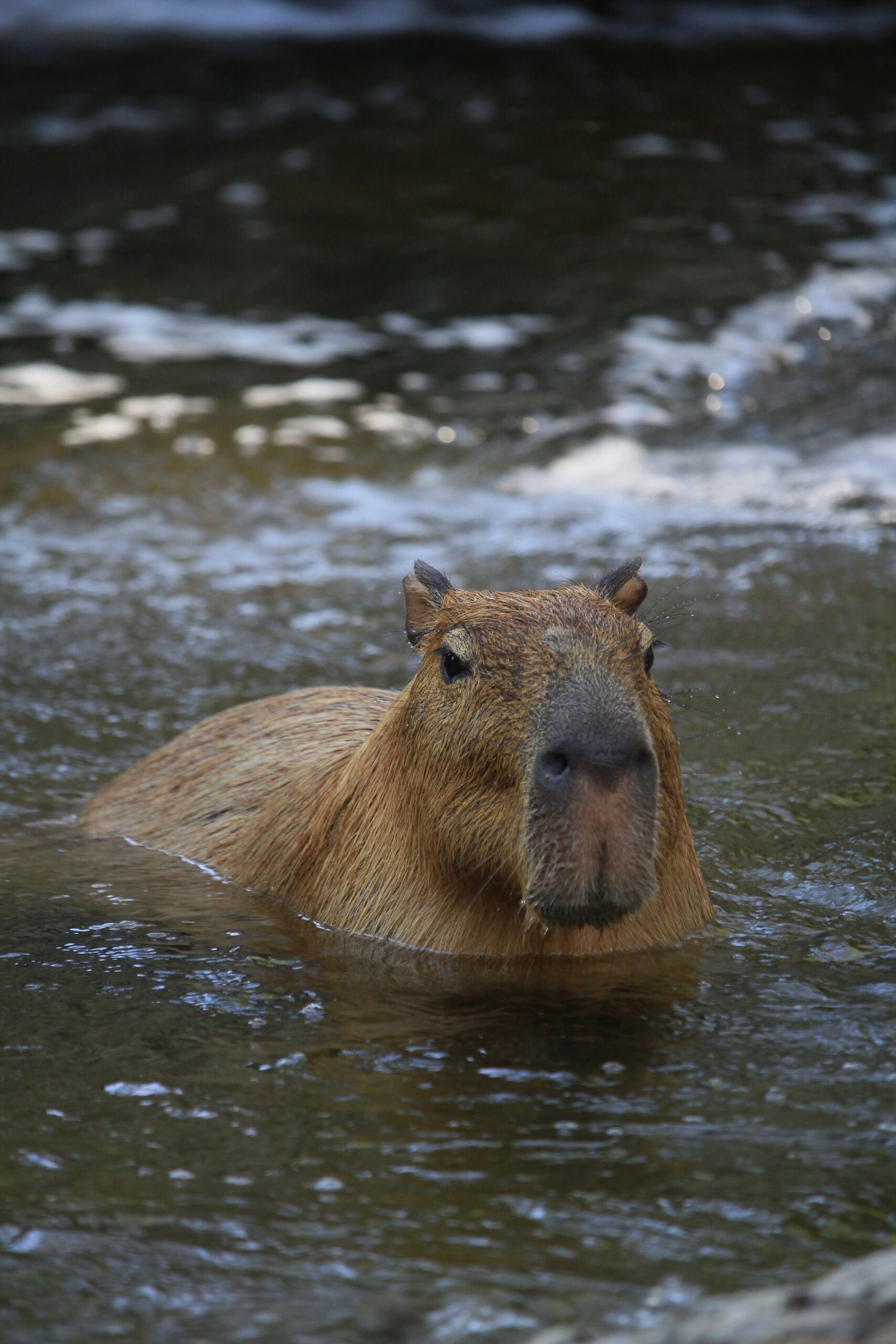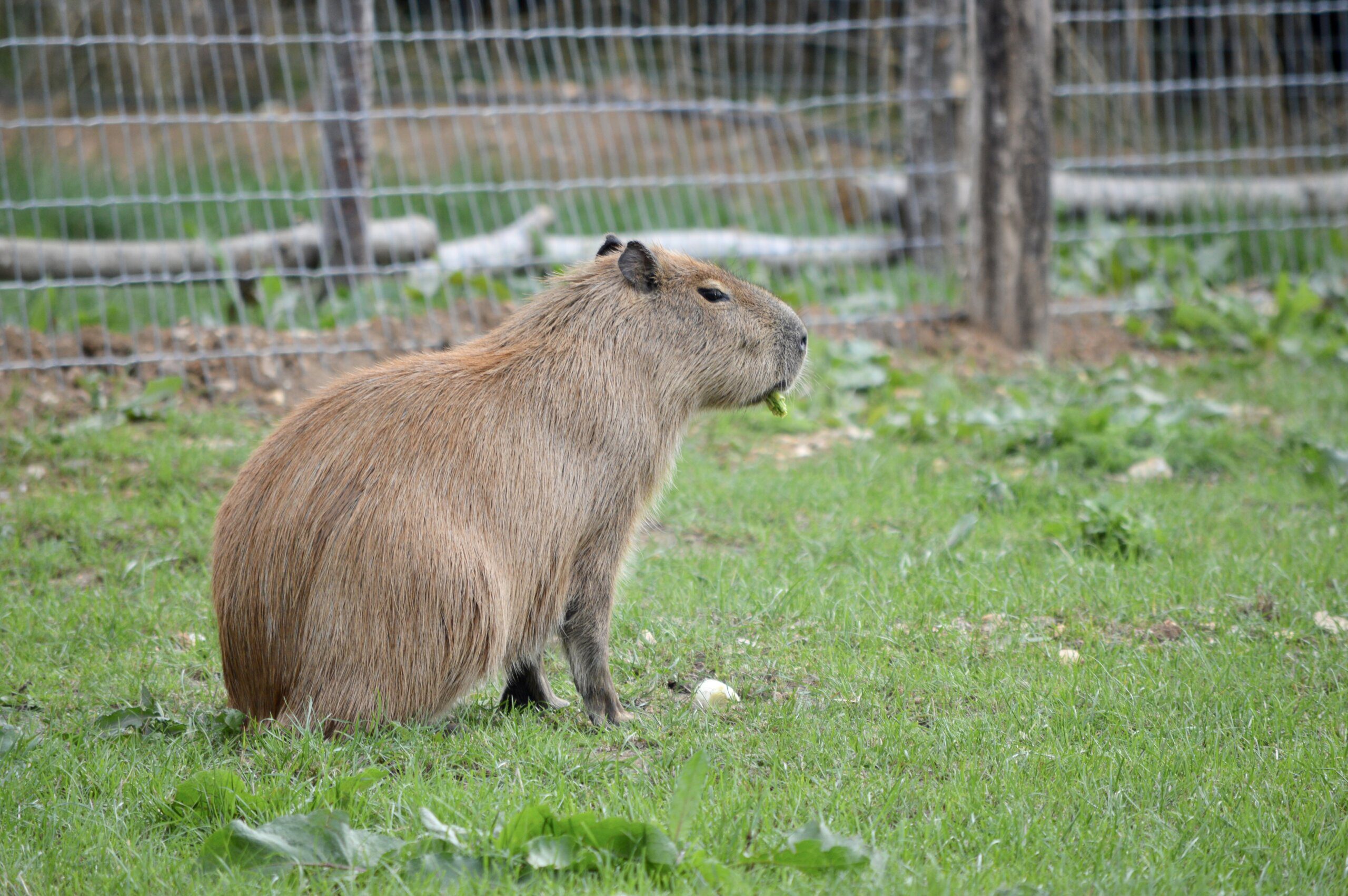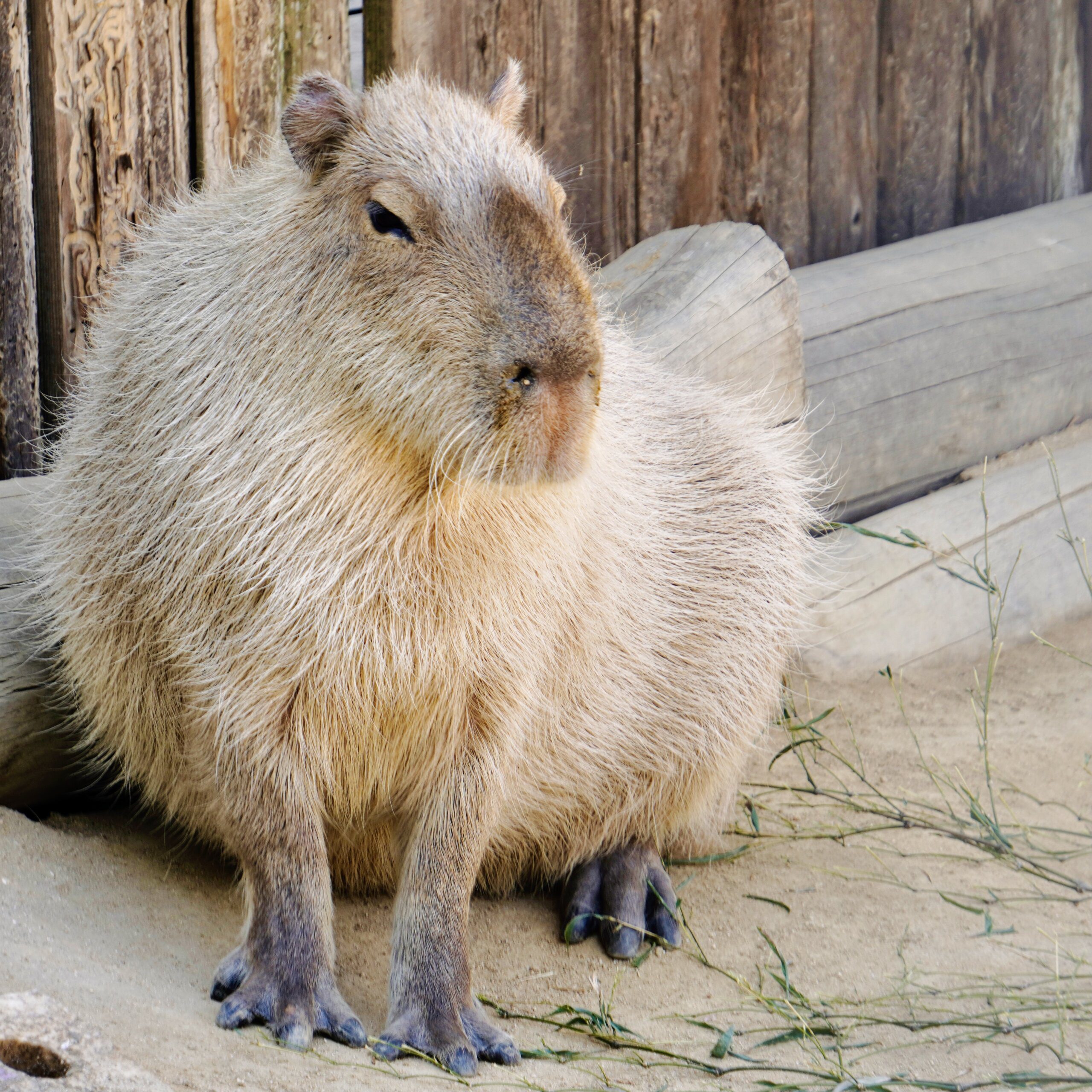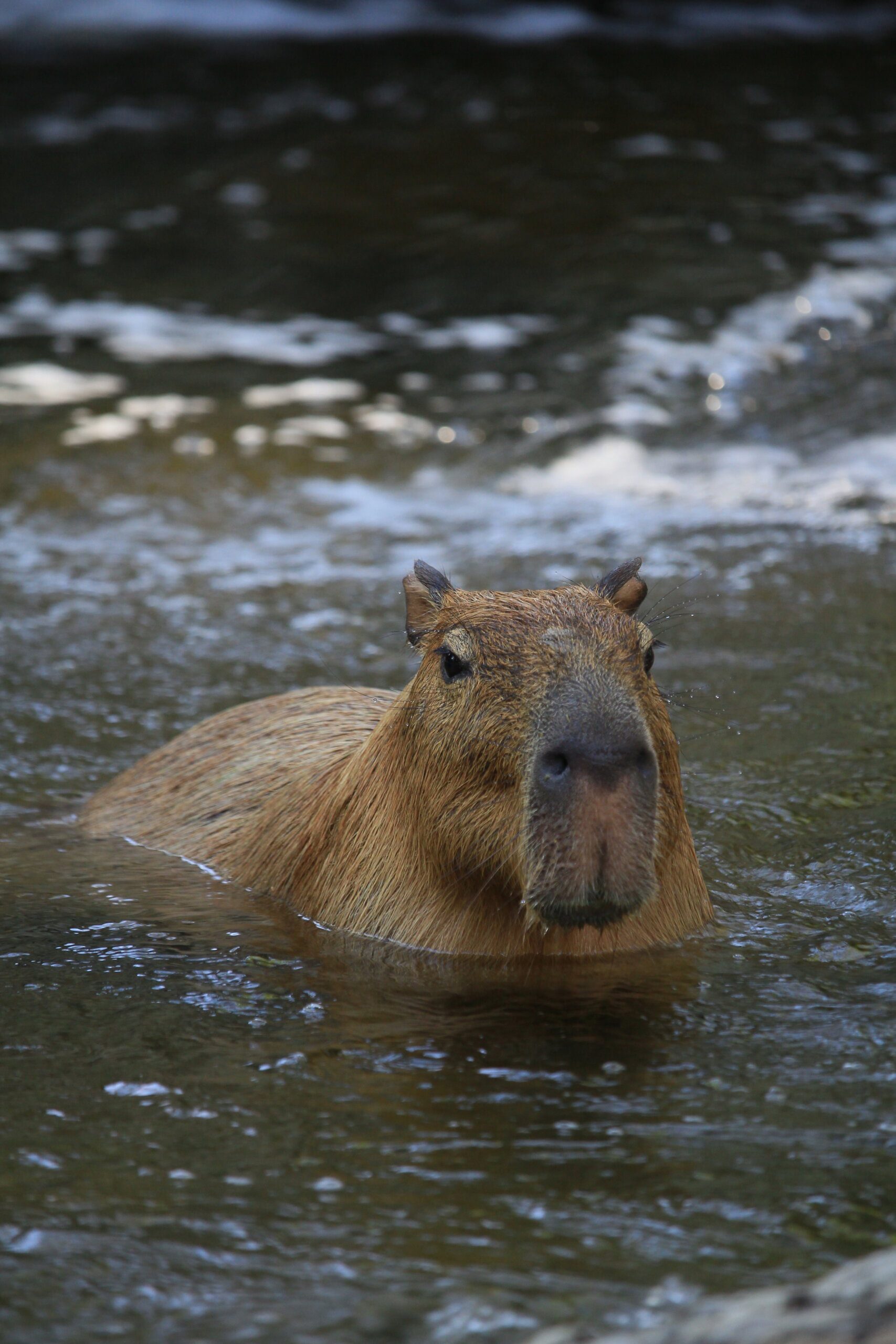Are you considering getting a capybara as a pet? If so, you’re not alone! Capybaras, the world’s largest rodent, have gained popularity as exotic pets in the United States. These friendly creatures capture the hearts of many with their gentle nature and unique appearance. In this article, we’ll explore what it takes to keep a capybara as a pet in the US, including their habitat, diet, and the legal requirements involved. Whether you’re a seasoned pet owner or simply intrigued by these adorable creatures, read on to discover the ins and outs of living with a capybara companion.

Legal Considerations
Federal Laws
When it comes to keeping capybaras as pets in the United States, it’s important to be aware of the legal considerations at the federal level. Currently, there are no federal laws specific to capybara ownership or regulations. However, it’s crucial to understand that exotic animal ownership is heavily regulated in the U.S., and it is necessary to comply with federal laws concerning exotic pets.
State Laws
While there may not be federal laws specifically addressing capybara ownership, individual states have their own regulations regarding exotic animal ownership. Before considering bringing a capybara into your home, you should thoroughly research and understand the laws of your particular state. Some states may require specific permits or licenses for owning capybaras, while others may prohibit it altogether. It’s essential to comply with these regulations to ensure the well-being of both the animal and yourself as a pet owner.
Local Ordinances
In addition to federal and state laws, it’s also important to familiarize yourself with any local ordinances or regulations that may apply to owning a capybara. Some cities or counties may have specific rules or restrictions regarding exotic pet ownership. These ordinances may include requirements for enclosures, fencing, or even outright bans on certain species. Checking with your local animal control or zoning department can provide valuable information on any local regulations you need to adhere to.
Habitat and Space Requirements
Indoor Enclosure
Creating a suitable indoor enclosure is crucial when keeping a capybara as a pet. Capybaras require ample space to roam and exercise, even indoors. A spacious room or designated area within your home should be dedicated to the capybara’s indoor enclosure. This enclosure should be escape-proof, well-ventilated, and large enough to accommodate their size and natural behavior. Providing hiding spots, platforms, and opportunities for exploration and play will help keep your pet capybara physically and mentally stimulated.
Outdoor Space
While capybaras are primarily indoor pets, they also require access to outdoor spaces for exercise and enrichment. Having an enclosed outdoor area where your capybara can graze, explore, and bask in the sun is beneficial for their overall well-being. Ensure that the outdoor space is secure, free from potential hazards, and provides plenty of shade and fresh water. It’s important to note that capybaras are sensitive to cold temperatures, so in regions with harsh winters, it may be necessary to limit outdoor access during the colder months.
Fencing and Security
To keep your capybara safe and prevent escapes, it’s essential to have suitable fencing and security measures in place. Capybaras are excellent swimmers, so any fencing around outdoor areas should also be designed to prevent them from swimming out. A combination of sturdy fencing, such as chain-link or solid wood, and secure gates is necessary to ensure your capybara remains within designated areas. Regularly inspect the fencing for any signs of wear or damage and promptly address any issues to maintain a secure environment for your pet.

Diet and Nutrition
Herbivorous Diet
Capybaras are herbivores and have specific dietary requirements that need to be met to maintain their health. Their diet should consist mainly of high-quality hay, such as timothy hay, which provides the necessary fiber for their digestive system. In addition to hay, capybaras should also be offered a variety of fresh vegetables and fruits. Leafy greens, such as kale and lettuce, along with carrots, cucumbers, and bell peppers, are all suitable options. It’s important to avoid feeding them foods high in sugars or fats, as these can lead to health issues.
Fresh Water
Providing access to fresh, clean water is essential for the well-being of your capybara. Capybaras require access to water for drinking, as well as for swimming, as it helps keep their skin healthy. In their indoor and outdoor enclosures, ensure that your pet capybara has a shallow pool or container that allows them to partially submerge themselves comfortably. Regularly change the water to maintain cleanliness and remove any debris that may accumulate.
Nutritional Supplements
In certain cases, providing additional nutritional supplements may be necessary to ensure your capybara’s dietary needs are met. Your veterinarian can provide guidance on specific supplements that may be required based on your pet’s overall health and any deficiencies that may be present. It’s essential to consult with a veterinarian experienced in dealing with exotic animals to determine the appropriate supplementation if needed.
Socialization and Companionship
Group Living
Capybaras are social animals by nature and thrive when living in groups. If possible, it is recommended to keep them in pairs or small groups to mimic their natural social structure. However, introducing capybaras to one another requires careful consideration and proper introductions. It’s important to research and understand their social behaviors and consult with experienced capybara owners or professionals to ensure a successful introduction and harmonious group dynamic.
Interaction with Humans
Positive interaction with humans is crucial for the well-being of pet capybaras. They require regular socialization and handling to develop trust and bond with their owners. Spending quality time with your capybara, such as gentle petting and offering treats, can help establish a positive relationship. It’s important to respect their boundaries and never force interaction. Capybaras have their own unique personalities, and each may have different preferences for human interaction. Building trust gradually and providing a comfortable environment for your capybara will help foster a strong human-animal bond.
Compatibility with Other Pets
Introducing a capybara into a household with other pets requires careful consideration and proper supervision. While some capybaras may get along well with other animals, such as dogs or cats, it’s important to assess their compatibility and monitor interactions closely. Some pets may view capybaras as prey or become aggressive towards them. Likewise, capybaras may become stressed or anxious if constantly pursued or harassed by other animals. Always prioritize the safety and well-being of all pets involved and seek professional advice if needed.

Enrichment and Mental Stimulation
Environmental Enrichment
Providing a stimulating environment is crucial to keep your capybara mentally engaged and prevent boredom. Incorporating various enrichment items, such as tunnels, platforms, and different substrates, can encourage natural behaviors and exploration. Additionally, offering a variety of safe and non-toxic materials, such as cardboard boxes or PVC pipes, for chewing and nesting purposes can provide mental stimulation and prevent destructive behavior.
Chew Toys and Gnawing Opportunities
Capybaras have constantly growing teeth and require appropriate chew toys and gnawing opportunities to maintain dental health. Offering sturdy chew toys made specifically for rodents or providing branches from safe, pesticide-free trees allows your capybara to fulfill their natural gnawing instincts. Regularly inspect and replace chew toys to ensure they remain in good condition and pose no choking hazards to your pet.
Training and Puzzle Games
Training your capybara can be a beneficial way to provide mental stimulation and strengthen your bond. Capybaras can learn basic commands, such as coming when called or target training, through positive reinforcement techniques. Additionally, puzzle games that challenge their problem-solving abilities, such as treat-dispensing toys or hiding food in various locations, can keep their minds active and prevent boredom. It’s important to keep training sessions short and fun, using rewards like praise, treats, or favorite vegetables.
Health and Veterinary Care
Regular Check-ups
Regular veterinary check-ups are essential to monitor your capybara’s overall health and catch any potential issues early on. Finding a veterinarian familiar with exotic animals, specifically capybaras, is crucial to ensure proper care. During check-ups, your vet will perform thorough examinations, check vital signs, and may recommend additional testing, such as blood work, to identify any underlying health conditions. Regular check-ups also provide an opportunity for you to discuss any concerns or questions you may have regarding your capybara’s well-being.
Vaccinations and Preventative Care
While there are no specific vaccinations required for capybaras, it’s important to follow a preventative care routine recommended by your veterinarian. This includes regular deworming to prevent internal parasites, as well as external parasite prevention, such as flea and tick treatments. Additionally, maintaining proper dental hygiene, including regular teeth checks and potential tooth trims, is crucial for capybaras, as their teeth continuously grow and can develop dental issues if not properly cared for.
Common Health Issues
Capybaras are generally hardy animals, but they can still experience certain health issues. Some common health concerns in capybaras include dental problems, foot pad injuries, and obesity. Regular dental checks and providing appropriate chew toys can help prevent dental issues. Ensuring a clean and comfortable environment, as well as avoiding surfaces that may cause foot pad injuries, is important for their overall wellbeing. Monitoring their diet and ensuring they receive appropriate exercise can help prevent obesity-related issues. If you notice any changes in behavior, appetite, or physical appearance, it’s important to consult with your veterinarian promptly.
Grooming and Hygiene
Dental Care
Proper dental care is crucial for capybaras to prevent dental issues. Offering appropriate chew toys, as mentioned earlier, helps keep their teeth in good condition. However, regular dental checks by a veterinarian are still necessary to assess their dental health and determine if any additional care, such as tooth trims, is required. Maintaining good dental hygiene is essential for capybaras, as dental problems can be painful and impact their overall health.
Coat Maintenance
Capybaras have dense, coarse fur that requires minimal grooming. However, regular brushing can help remove loose hairs and debris, preventing matting and keeping their coat clean. Brushing also promotes bonding between you and your capybara, as most enjoy the sensation of being groomed. Additionally, providing opportunities for your capybara to swim or soak in shallow water can help keep their skin healthy and their coat in optimal condition.
Nail Trimming
Regular nail trimming is an important aspect of capybara care. Capybaras have sharp nails that can become overgrown, leading to discomfort or potential injuries. Trimming their nails is best done by an experienced professional, such as a veterinarian, who can ensure the nails are cut to an appropriate length without causing any harm to the capybara. It’s recommended to have their nails trimmed every few months, but the frequency may vary depending on the growth rate of their nails.
Legal and Ethical Considerations
Ethical Concerns
When considering owning a pet capybara, it’s essential to address the ethical concerns associated with keeping an exotic animal. Capybaras are wild animals that require specialized care and a complex environment to thrive. Ensure that you have the knowledge, resources, and dedication to provide the necessary care for the capybara throughout its lifespan. Additionally, consider the impact of removing capybaras from their natural habitat and the potential consequences for conservation efforts.
Conservation Efforts
Capybaras are native to South America, and it’s crucial to consider the conservation efforts surrounding their species. While capybaras are not currently classified as endangered, supporting conservation organizations and initiatives that aim to protect their natural habitats and populations is important. Ensure that any capybara you acquire is from a legal and ethical source to prevent contributing to the illegal wildlife trade or harming wild populations.
Responsible Ownership
Responsible ownership of a capybara involves more than just meeting their basic needs. It requires ongoing education, regular veterinary care, and a commitment to providing a high quality of life for the animal. Researching the specific needs of capybaras, obtaining necessary permits or licenses, and adhering to all relevant laws and regulations are all essential aspects of responsible ownership. Additionally, networking with other capybara owners, seeking professional advice when needed, and continually reassessing and improving their environment and care are key to being a responsible capybara owner.
Training and Behaviors
Litter Training
Litter training can be beneficial for capybaras and their owners, as it promotes cleanliness and makes it easier to maintain their indoor enclosure. Training capybaras to use a litter box follows a similar process as training cats. Gradually introduce a litter box into their enclosure, preferably in a location where they naturally tend to eliminate. Rewarding them with treats or praise when they use the litter box and consistently removing any waste outside the box helps reinforce good litter habits.
Handling and Taming
Proper handling and taming techniques are essential when it comes to capybara care. Capybaras can be initially shy or cautious around humans, so it’s important to approach them calmly and gently. Allow them to approach and sniff you before attempting any physical contact. Gradually introduce handling through gentle petting and touch, always respecting their boundaries and comfort levels. With time, patience, and positive reinforcement, capybaras can develop trust and become more comfortable with human interaction.
Communication and Body Language
Understanding capybara communication and body language is vital for effective interaction and identifying any signs of stress or discomfort. Capybaras use various vocalizations, including purring, barking, and even huffing, to communicate their feelings. Pay attention to their postures, such as raised fur or tense body language, which can indicate agitation or fear. Additionally, their ear and tail positions, as well as eye contact or avoidance, provide valuable information about their current emotional state. Observing and learning their individual communication cues will help ensure a positive and respectful relationship with your capybara.
Finding and Acquiring a Capybara
Legal Sources
When looking to acquire a pet capybara, it’s essential to obtain them from legal and reputable sources. Avoid purchasing capybaras from the illegal wildlife trade, as it not only contributes to the endangerment of wild populations but also poses ethical concerns. Research and identify reputable exotic animal breeders or dealers who adhere to legal and ethical standards. Obtain proper documentation and ensure that the capybaras are acquired through legal and responsible means.
Reputable Breeders
Reputable breeders who specialize in exotic animals can be a reliable source when looking for a pet capybara. Ensure that the breeder has experience with capybaras and provides a suitable environment for their animals. Responsible breeders prioritize the well-being of their capybaras, follow ethical breeding practices, and offer ongoing support and guidance to pet owners. Request to visit the breeder’s facility to assess the living conditions and care provided to their animals before making a decision.
Adoption and Rescue
Adoption or rescue organizations may also have capybaras available for adoption. It’s worth considering adopting a capybara, as it provides a second chance to an animal in need. Reach out to local exotic animal rescues or animal shelters to inquire about the availability of capybaras for adoption. These organizations often provide necessary veterinary care, socialization, and rehabilitation to capybaras before they are ready for adoption. Adopting a capybara can be a fulfilling and compassionate choice, giving a deserving animal a loving forever home.



